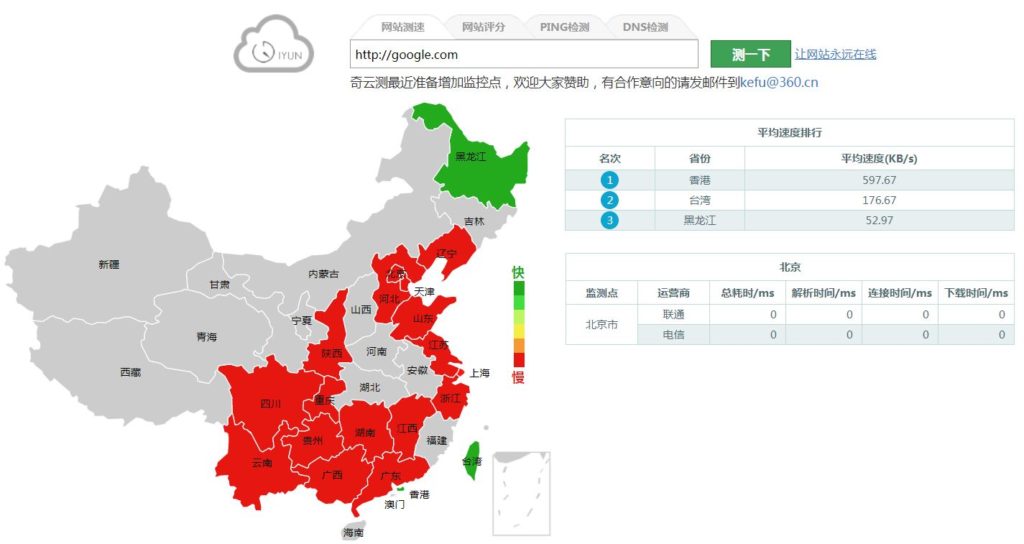Building a Chinese website for a foreign brand maybe not be as straight forward task as in the case of other markets. Thanks to a unique nature of Chinese internet and various market specifics, brands must modify their approach for establishing China web presence.
Here is the comprehensive list of 15 points to consider for building Chinese websites for brands.
#1 Use native translation for Chinese website
While using native translation should be the obvious rule, a surprising number of foreign companies still cut corners on this one. It should go without saying that companies should always use professional translators to repurpose the original content for a Chinese website version while also making sure that they are proofread by native Mandarin speakers.
#2 Remove links to blocked social media
While re-purposing landing pages for Chinese market, many companies forget to remove standard links to their social media accounts that are inaccessible in China anyway. The links to company Facebook, Twitter, YouTube and Instagram links won’t work anyway and but those broken links may also significantly slow down Chinese website loading time. Ideally, a page loading time should not exceed 5 seconds, although that is often hard to achieve with overseas hosting (more on it below).
#3 Optimize your Chinese website loading time
Loading time is almost always an issue for sites hosted outside of China. Unfortunately, without local business registration, hosting in China will not be possible. The next best option would be to get a hosting in Hong Kong. Some Hong Kong based hosting providers would often advertise “fast China route” options without physically having to host on the Mainland’s servers.
Alibaba Cloud is a popular hosting solution that is cheap and easy to sign up for. However, make sure that you select Hong Kong based servers when buying their hosting package.
#4 Embed videos from local platforms
Embedded videos which are hosted on YouTube or Vimeo won’t be displayed in China (see #2). The solution is to setup an account on YouKu, Chinese YouTube equivalent, upload your video there and link to it from your Chinese landing page. However, one should keep in mind that free YouKu accounts will often display pre-roll ads to Mainland visitors. The solution is to opt to paid YouKu accounts or find an alternative video hosting platform that isn’t blocked in China.
#5 Integrate share buttons and links to Chinese social media
If you already have Chinese social media presence on Weibo, YouKu, WeChat or other platforms, make sure to include links to those sites on your Chinese website. As there is no such thing as a “WeChat link”, your Chinese website should display official account’s QR code. This will not only demonstrate to your visitors that you have an established local presence but will also help in getting more followers to your Chinese social media channels.
If your website includes sharable content, make sure to include sharing buttons to Weibo and WeChat that do not require having an account on those platforms.
#6 Localize the contact form
Most website nowadays offer some type of subscription form to collect visitor’s email and other data. What is often missed is localizing such the forms by making sure that all the fields are properly translated to Chinese and don’t have any original English field names which can confuse visitors.
Also, keep in mind that while your English form may have separate fields for first and last names, Chinese equivalent would typically use just one name field for both the surname (one character) and the given name (one or two characters).
#7 Optimize for mobile
Mobile optimization of a website is extremely important for Chinese market as most traffic comes from mobile devices anyway. It’s essential to use responsive design for your Chinese website ensuring that it displays correctly on most types of mobile screens.
You may consider a separate design for a mobile version of the site to pack the most essential info “above the fold” and minimize scrolling and clicking text links.
#8 Live support
Having been spoiled by Taobao, China’s online consumers often expect instant live support for Chinese website. This is especially true for ecommerce or website that offer services.
One of the most critical components for a successful conversion of online consumers is being able to communicate with them in real, or almost real time. Luckily, there are many options available for such live chats that can keep track of the conversations and capture users’ data at the same time. Companies like Alibaba offer their own chat solutions that can incorporates into other sites.
#9 ICP License for Chinese website
If your company is registered in China, it is eligible to apply for ICP (internet content provider) license. It would allow you to get hosting in China that helps improving Chinese website loading time as well signal to your users that are in full compliance with the local law.
The ICP license number should be displayed in the footer like this:
#10 Subdomains or multiple domains
Chinese search engines generally dislike subdomains – something that is very common with multilingual websites. For example, you should avoid setting up en.mysite.com for English and zh. mysite.com for Chinese. Baidu prefers to have different languages on completely separate domains. For example, if www.mysite.com is your main site, www.mysite.cn could be its Chinese language equivalent. This makes it harder to maintain, however, if you want to rank high on Baidu – do not use subdomains.
#11 Using robot.txt file
Another Baidu quirk is disfavoring robot.txt file – Google’s standard way to communicate with search engine crawlers. This is the most common way to tell search engines which pages should not be crawled. For the purpose of your China web presence, those specific instructions should be set in .htaccess file or in server settings. This is another reason to use separate domain for your Chinese site (see #1).
#12 Domain names
Baidu ranks .CN domains higher than the equivalent .COM and.NET. As .CN domain registration is open to foreigners now, there is no excuse not to grab it. Also, once you have established you China web presence and your brand becomes well-known, chances are that .CN domain may become the target of internet squatters. So, if it is still available, register it now.
#13 Blacklisted keywords
If your site uses any of the blacklisted keywords, it will be deindexed by Baidu and probably blocked from access too. Wikipedia keeps updated list of blacklisted keywords that are mostly related to politics but keep in mind that the list may change quickly triggered by specific current events. In any case, staying away from politics in China is probably a good idea anyway.
#14 Using iFrames, JavaScript and Flash
Similar to Google, Baidu can’t crawl iFrames and Flash content. Although Google is getting much better in crawling JavaScript, Baidu is still pretty much blind to it. This means that any of your SEO content should not be in JavaScript which also includes navigation drop down menu. This is why it is a good idea to have a duplicate footer menu that is not JS based. As for iFrames and Flash – they belong to history anyway.
#15 Keep it Baidu-friendly
Due to frequent connectivity problems, Baidu’s crawlers won’t index pages that are too deep in your hierarchy. Keep your website’s architecture flat and accessible.
Anchor text should of course be in Chinese. They should also match the keywords being used on your website. Baidu is quite strict about this and may penalize sites where the anchor text and keywords are not in sync.
Don’t count on Baidu finding your site quickly – it’s better to submit it manually. Since, Baidu doesn’t have an equivalent to Google webmaster tools, the website has to be re-submitted every time there is a major change. Here is the link to Baidu submission tool.









